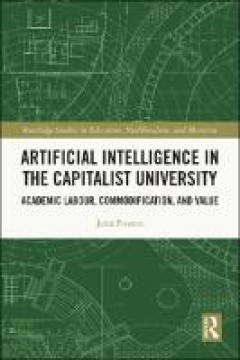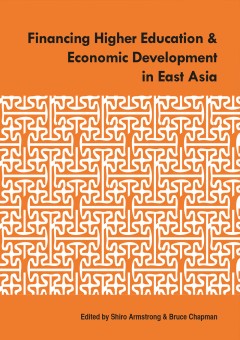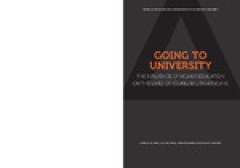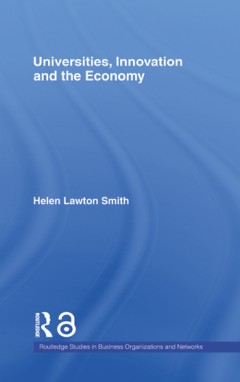Filter by

Artificial intelligence in the Capitalist University : academic labour, commo…
Using Marxist critique, this book explores manifestations of Artificial Intelligence (AI) in Higher Education and demonstrates how it contributes to the functioning and existence of the capitalist university. Challenging the idea that AI is a break from previous capitalist technologies, the book offers nuanced examination of the impacts of AI on the control and regulation of academic work and l…
- Edition
- -
- ISBN/ISSN
- 9781003081654
- Collation
- VII, 173 p.
- Series Title
- Routledge Studies in Education, Neoliberalism, and Marxism,
- Call Number
- 378.17344678 PRE a

Financing higher education and economic development in East Asia
This volume addresses important issues to do with access to higher education and different models of its financing in the East Asia region. It is enriched by diverse perspectives from vastly different starting points and by the historical and institutional settings in the region. The issues are set out in the context of the value of higher education in economic development and how it contribute…
- Edition
- -
- ISBN/ISSN
- 9781921666636
- Collation
- viii, 281p. : ill.
- Series Title
- -
- Call Number
- 379.1214 FIN f

Knowledge for a sustainable world : a Southern African-Nordic contribution
The search for answers to the issue of global sustainability has become increasingly urgent. In the context of higher education, many universities and academics are seeking new insights that can shift our dependence on ways of living that rely on the exploitation of so many and the degradation of so much of our planet. This is the vision that drives SANORD and many of the researchers and instit…
- Edition
- -
- ISBN/ISSN
- 9781928331049
- Collation
- xi, 244p. : ill.
- Series Title
- -
- Call Number
- 338.96807 KNO k

Going to university : the influence of higher education on the lives of young…
Around the world, more young people than ever before are attending university. Student numbers in South Africa have doubled since democracy and for many families, higher education is a route to a better future for their children. But alongside the overwhelming demand for higher education, questions about its purposes have intensified. Deliberations about the curriculum, culture and costing of p…
- Edition
- -
- ISBN/ISSN
- 9781928331698
- Collation
- ix, 164p. : ill.
- Series Title
- -
- Call Number
- 378.68 GOI g

Universities, innovation and the economy
Universities are increasingly expected to be at the heart of networked structures contributing to society in meaningful and measurable ways through research, the teaching and development of experts, and knowledge innovation. While there is nothing new in universities’ links with industry, what is recent is their role as territorial actors. It is government policy in many countries that univer…
- Edition
- -
- ISBN/ISSN
- 9781134344185
- Collation
- xii, 265p. : ill.
- Series Title
- -
- Call Number
- 338.476200094 SMI u
 Computer Science, Information & General Works
Computer Science, Information & General Works  Philosophy & Psychology
Philosophy & Psychology  Religion
Religion  Social Sciences
Social Sciences  Language
Language  Pure Science
Pure Science  Applied Sciences
Applied Sciences  Art & Recreation
Art & Recreation  Literature
Literature  History & Geography
History & Geography